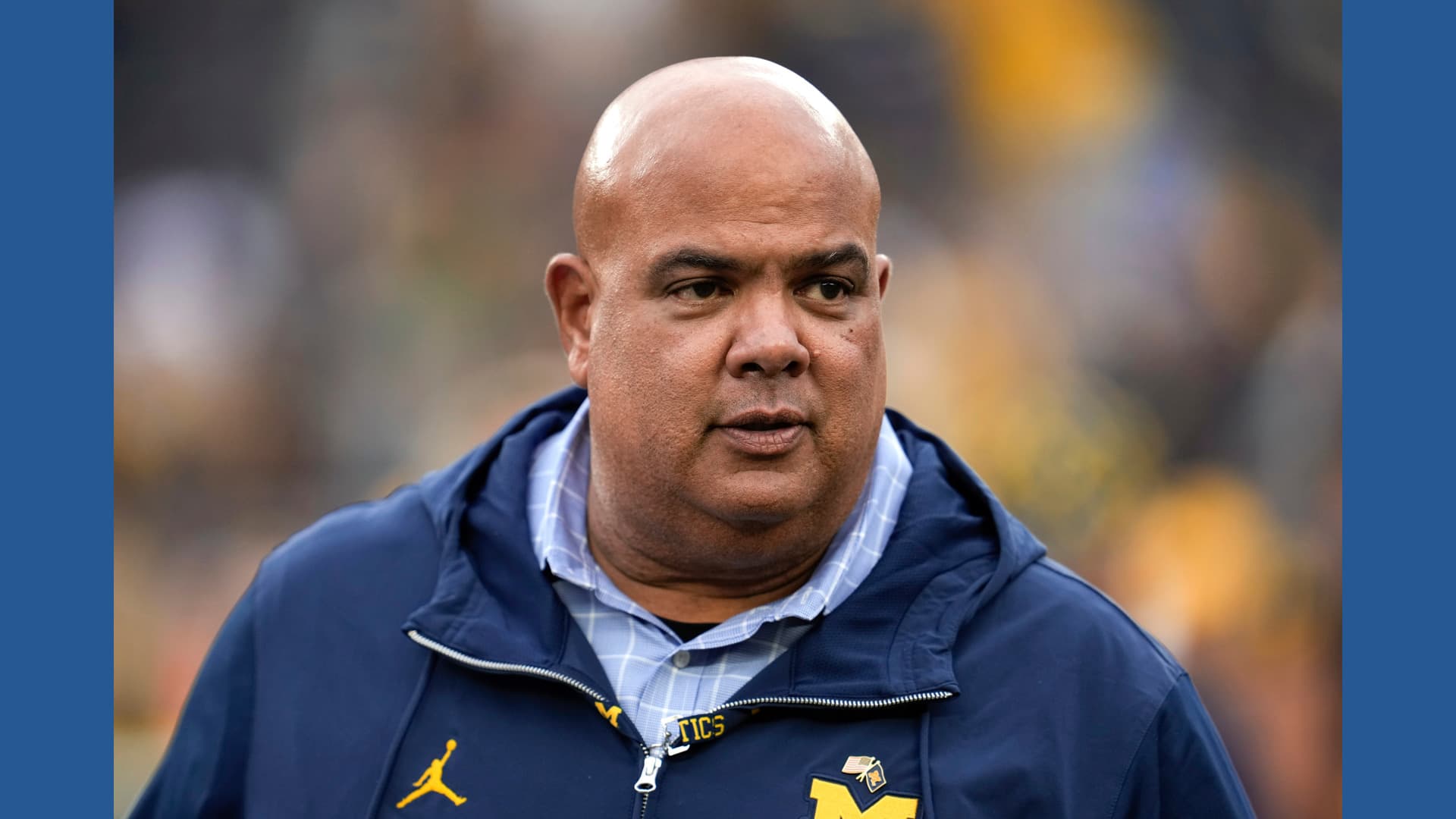Michigan Says Sign Stealing Penalties Will Cost Over Thirty Million
Michigan athletic director Warde Manuel told listeners that NCAA sanctions announced in August will exact a financial toll exceeding thirty million dollars, a hit that will reshape the program’s budget and planning for 2026. The penalties and their fallout matter because they affect recruiting, operations, donor confidence and the broader debate over rules enforcement in high stakes college sports.

Warde Manuel disclosed in a radio interview on November 24, 2025 that the NCAA penalties levied against the University of Michigan for a multi season sign stealing scandal will cost the athletic department more than thirty million dollars. The sanctions, announced by the NCAA in August, included tens of millions in fines and financial penalties, probation, recruiting restrictions and a series of suspensions and show cause orders. Michigan initially appealed the ruling but later withdrew that appeal and is now managing the budgetary and reputational fallout.
The revelations came as the Wolverines prepared for the off season and the athletic department set budgets for 2026. Administrative leaders face the practical task of reallocating resources to absorb the direct costs imposed by the NCAA while maintaining competitive operations in one of the nation’s premier college football programs. The financial consequences extend beyond the headline figure. Legal and compliance costs, potential reductions in revenue from recruiting shortfalls, and lingering damage to brand value will shape the program’s strategy in the months ahead.
The NCAA investigation described in person scouting, improper electronic surveillance and a coverup stretching across multiple seasons. Those findings have amplified long running concerns about the ways technology and intensive scouting practices intersect with the commercialization of college athletics. For fans and alumni, the scandal has undercut trust in a program that has been a cultural touchstone in Michigan and beyond, raising questions about institutional priorities and oversight.
The penalties also carry immediate recruiting implications. Recruiting restrictions limit the program’s ability to court top prospects during a critical cycle, potentially accelerating transfers or pushing recruits to programs without restrictions. For a program that competes for top talent nationally, even a short window of constrained recruiting can alter roster composition and on field performance in the near term. That dynamic will test the depth of the coaching staff, the effectiveness of existing player development pipelines and the patience of stakeholders who expect sustained competitiveness.

Business considerations extend beyond the athletic department balance sheet. Donor giving, ticket sales, and corporate partnerships are sensitive to reputational shifts. Television and sponsorship partners value stable, controversy free programming, and prolonged scrutiny can depress market confidence. The incident underscores a broader industry trend in which compliance risk and technological exploitation are becoming central governance challenges for universities that operate major sports enterprises.
Culturally, the scandal feeds into a national conversation about fairness, accountability and the pressures created by the high stakes of modern college sports. Critics argue that enforcement must keep pace with technological change, while defenders of programs emphasize the intense competitive environment and blurred lines created by NIL and transfer market movements. Michigan’s experience will likely inform both policy debates and institutional practices across the country as universities reassess surveillance safeguards, recruiting protocols and internal controls.
As Michigan moves forward, the immediate priority will be financial triage and reputational repair. The long term outcome will hinge on how the program adapts recruiting strategies, rebuilds trust with fans and donors, and aligns its operations with evolving standards for competitive integrity in college athletics.


